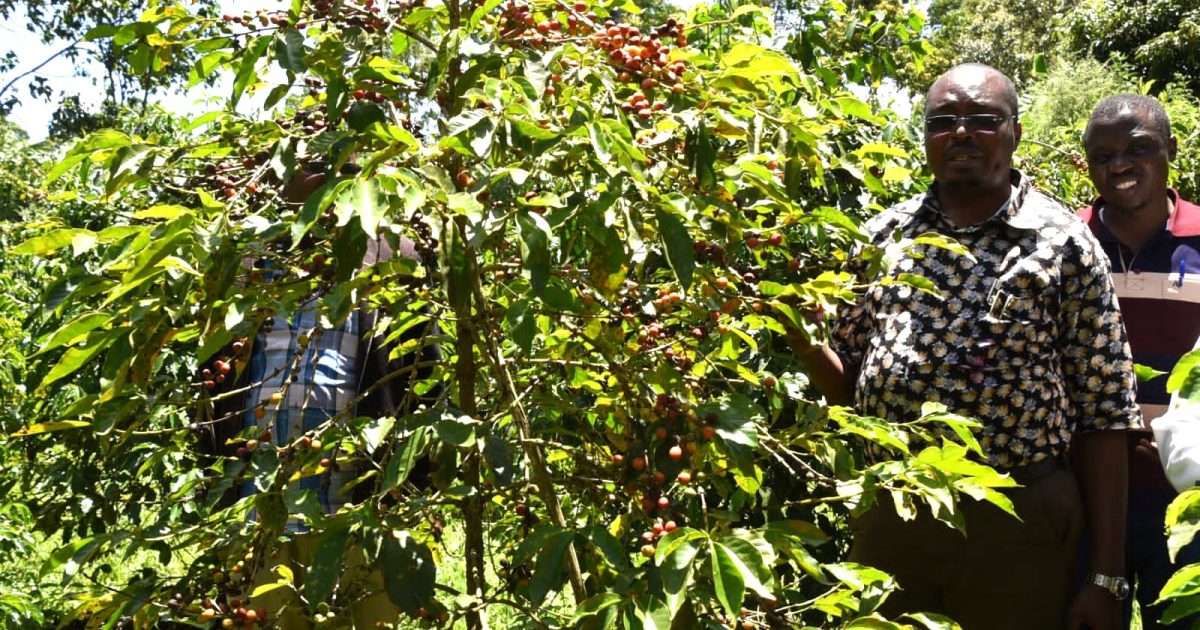Cabinet Secretary for Co-operatives and Small, Micro, and Medium Enterprises Simon Chelugui has encouraged Murang’a coffee farmers to take advantage of the new reforms in the sector to increase their production.
He told farmers during a coffee meeting that the set Minimum Guaranteed Returns (MGR) would offer them an opportunity to increase production and thus boost their earnings.

He underscored the reforms the government is doing in the coffee sector, observing that in the past, many farmers abandoned the crop due to poor earnings.
The CS noted that the set Sh. 80 minimum guaranteed price for every kilo of coffee delivered is a good move to ensure farmers don’t incur losses for their efforts.
“Sh. 80 will be paid once a farmer delivers coffee to their respective factories. After the coffee is sold, the excess money will be paid as a bonus. Implementation of the reforms has seen the coffee price go up as the government continues to engage more international buyers,” said Chelugui at Ihura Stadium.
The CS told farmers that they are currently engaging buyers from Korea and America who have shown interest in Kenyan coffee.
With the production of quality coffee, Chelugui stated the price of the cash crop will double, saying he hopes to see a kilo of coffee selling for Sh. 150 in less than a year.
He pointed out that the directive to have every player in the coffee market perform a specific duty has borne fruit, saying that in the past, one person did the work of milling, brokerage, and marketing coffee, thus exploiting farmers.
“We have resolved that all millers, brokers, and marketers of coffee and all those involved in the value chain stick to their specific duties. After this was enforced, the coffee sector is realising more returns, which is a good move for farmers who have for a long time suffered,” he added.
Chelugui, who was accompanied by officials of the New KPCU, divulged that plans are on course to provide subsidised inputs to coffee farmers.
He noted that coffee farmers don’t get subsidised fertiliser among other farm inputs, subjecting farmers to incur high production costs.
“There are plans to provide subsidised farm inputs, including fertiliser and chemicals, among others, to boost coffee production through KPCU. This will cushion them from the high cost of production,” he averred.
Meanwhile, the CS said they will not tolerate poor leadership in the coffee cooperative societies.
In the past, he reflected that the mismanagement of coffee societies has seen farmers lose millions of shillings through corruption and theft of coffee from the facilities.
“Farmers need to elect leaders of integrity to manage their societies and factories. The era when some board members and factory managers used to embezzle farmers’ earnings is gone. The government is committed to ensuring farmers’ income generated from their coffee is protected and reaches them without delay,” stressed Chelugui.
On his part, Chairman of New KPCU, Mr. Daniel Chemno, assured farmers the coffee delivered to their facility is well protected, and they will ensure their cherries fetch high prices in the Nairobi coffee exchange market.
“The coffee delivered to KPCU is safe, and we assure you farmers that we will get the best price for your produce. Already, we have engaged international buyers, and that’s why the price has gone up.
“My appeal is for factories to help the farmers apply for cherry advance funds. Sh. 6.7 billion is already set aside for the cherry fund.” He added.
Chemno lauded farmers from the central region who never abandoned the crop despite numerous challenges that rocked the sector.
Farmers represented by their chairman, Francis Ngone, requested the government to support coffee factories to add value to their produce.
They said some factories use dilapidated machines, thus the need to have modern equipment, which will curb waste when processing coffee.
“The conditions associated with cherry funds also need to be reviewed and made easy for farmers to access the advance payments. We are optimistic that the new reforms will make the sector lucrative like it was in the 1980s,” said Ngone.
By Bernard Munyao and Purity Mugo





